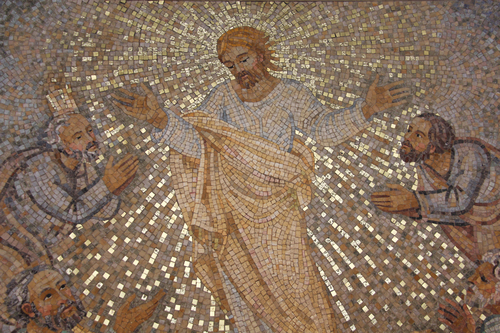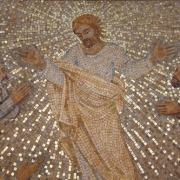Wasting Strength – Ephesians 6:10 – September 30, 2022
/0 Comments/in Enduring Words for Troubled Times, Podcast/by David GuzikThe Man of God and the False Prophet – 1 Kings 13:18-19 – September 29, 2022
/0 Comments/in Enduring Words for Troubled Times, Podcast/by David GuzikStart of a Shameful Season – 2 Samuel 11:1 – September 28, 2022
/0 Comments/in Enduring Words for Troubled Times, Podcast/by David GuzikMeeting Needs – James 5:13-14 – September 27, 2022
/0 Comments/in Enduring Words for Troubled Times, Podcast/by David GuzikBecause He Wanted To – Isaiah 53:7-9 – September 26, 2022
/0 Comments/in Enduring Words for Troubled Times, Podcast/by David GuzikA Certain Jesus
/0 Comments/in For Pastors, Preachers, Bible Teachers/by David GuzikDear Pastor, Preacher, or Bible Teacher –
Good Monday to you! Of course, I don’t know if you are reading this on a Monday, but that’s the day it is sent to you. I pray you are blessed in your walk with God, your family, and your service unto God, His people, and a needy world.
Here’s a quick thought from Acts 25:18-19:
When the accusers stood up, they brought
no accusation against him of such things as I supposed,
but had some questions against him about their own religion
and about a certain Jesus, who had died, whom Paul affirmed to be alive.

In Acts 25, the man speaking these words is Festus, a newly appointed governor of the Roman province of Judea. He is explaining to King Agrippa why Paul was on trial. Festus explained that the accusations against Paul surprised him (they brought no accusation against him of such things as I supposed). Their accusations focused on matters of their religion and a certain Jesus, who had died, whom Paul affirmed to be alive.
The words “a certain Jesus” show that Festus didn’t know much about Jesus. It is good to remember that the great and important people of Paul’s day didn’t know much about Jesus, and they had to be told. People still must be told today. Preacher, they might not hear about Jesus, especially His death and resurrection for us, unless you tell them!
Festus didn’t know much about Jesus, but he knew that Paul emphasized the death and resurrection of Jesus.
Please note that the religious leaders accusing Paul complained that Paul wouldn’t stop talking about the risen Jesus, and they hoped that the governor would make Paul stop. Paul didn’t only speak about the risen Jesus, but also Jesus, who had died. When Paul preached, he emphasized the cross. It’s hard to believe that Festus knew that Paul preached that Jesus died, without also hearing about how Jesus died.
It’s really pretty simple:
– People don’t know much about Jesus and need to be told the good news of who Jesus is and what He did for us.
– When you talk about Jesus, always find a way to talk about His crucifixion and resurrection for us.
Wouldn’t you love that to be said of you? “This preacher won’t stop talking about Jesus, and that Jesus died and rose again for us.”
Blessings to you in Jesus’ Name – David Guzik
Click Here to Receive Email from David for Pastors, Preachers, and Bible Teachers
Standing on Our Rights
/0 Comments/in Weekly Devotional/by David GuzikSo Paul said, “I stand at Caesar’s judgment seat, where I ought to be judged… I appeal to Caesar.” (Acts 25:10-11)
It was a complicated situation.
Paul was held in Roman custody in the coastal city of Caesarea, waiting for a trial over a crime he didn’t commit, based on false accusations from those who hated Paul and the gospel of Jesus he preached.
When Paul was first put in custody, the Roman governor was Felix, who was eventually replaced by Festus. Felix was happy to delay the proceedings, hoping for bribes. When Festus came, he wanted to have a trial and resolve the matter regarding Paul.

When it was time for the trial, Paul faced powerful and corrupt adversaries. They wanted to have the trial in Jerusalem instead of Caesarea, knowing there was a secret plot to assassinate Paul on the way to Jerusalem.
Acts 25 doesn’t make it clear if Paul knew about this plot against his life. Whether he knew or not, God guided Paul to appeal to his right as a Roman citizen to be tried by Caesar in Rome. When Paul said, “I stand at Caesar’s judgment seat, where I ought to be judged…I appeal to Caesar” perhaps it was through supernatural knowledge, or perhaps through God-given common sense and deduction. One way or another, Paul demanded to stand trial before Caesar.
Rightly and wisely, Paul wanted to avoid martyrdom if he could. He wasn’t afraid to face the lions, but he didn’t want to put his head in a lion’s mouth if he could avoid it.
It was the right of every Roman citizen to have his case heard by Caesar himself, after initial trials and appeals failed to reach a satisfactory decision. This was in effect an appeal to the supreme court of the Roman Empire.
Paul’s appeal made sense. He was convinced that the evidence was on his side and that he could win in a fair trial. Paul appealed specifically to Caesar Nero, who was later a notorious enemy of Christians. But the first five years of his reign, under the influence of good men around him, Nero was regarded as a wise and just ruler. Paul had no reason at this time to believe that Nero would be anti-Christian.
I am fascinated by the fact that there were times when Paul refused to appeal to his rights. In Philippi, Paul could have stated his Roman citizenship much sooner and saved a lot of suffering (Acts 16:19-24). Paul had the right to be supported by the churches he served, but often gave up that right (1 Corinthians 9:3-7).
Yet there were times when Paul stood on his rights, such as here and in Acts 22:25-26.
We should be grateful for the rights given to us by God, and even more grateful if our government recognizes some of those rights. We should also pray for the Spirit-led discernment to know when to stand on our rights, and when to give them up.




